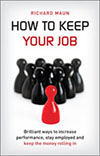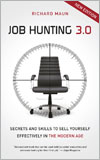better business blog
Tips and stories to add value to you and your organisation

Practical Performance Measurement
Measure me stupid! That’s the phrase I always keep in mind when working with clients on organisational change pieces. It’s tempting to set up complex KPIs (Key Performance Indicators) to ensure people stay on track and are pushed in the right direction, but we have to be careful of the law of unintended consequences, where bright people make dull decisions in order to fall in line with the metrics that govern their performance.
For example, I once advised a colleague who was struggling to change an administrative department. The staff there were busily answering the telephones instead of filing the correspondence. This lead to a huge increase in calls, with customers chasing their goods, because the lack of filing created a 3 week bottleneck in the system. The manager was only measured on the number of calls answered, so there was no incentive to organise the filing. In fact she was worried that if she sorted the filing, by taking staff away from the telephones, she would be penalised at her next performance review. Madness you cry! And yet this is a true story – measure me stupid, and I will act stupid. (Even if I really don’t want to, but I’d like to have a good appraisal thank you and keep my job). The answer here was to go and see the manager’s boss’s boss (go high to get senior level buy-in) and get the measure changed to a dual telephone/filing one. When that happened the backlog shrank from 3 weeks to 24 hours.
We need to think before we set a measurement in place. What is the outcome that we really want? If we want more goods out of the factory, then that’s the key measure and what happens inside the process is less relevant. If we want someone to make 10 telephone calls an hour, is that what we really want, or would we prefer that person to complete the customers’ requests? Measuring the calls alone might make us feel good, but it’s likely to sabotage customer satisfaction.
Measurement is all about nudging people in the direction you want them to go, not constraining them with tight barriers. We can see this in action with speed cameras. Place one on a motorway and people brake hard and then speed up again. Swap a lonely camera for an average speed check and people all slow down to a steady pace. The authorities are nudging us to drive at a sustainably safer speed. Easy!
This week take a moment to review the KPIs in your business. Are you using them to nudge good behaviour? Or are they encouraging people to spend time polishing the bricks in their office wall, without fixing the hole in the roof?
Next week: Drinking Coffee Is Selling
e-publishing
Click icon for details


recent posts
browse archive
books
Click cover to view details on Amazon

How to Keep Your Job
Brilliant ways to increase performance, stay employed and keep the money rolling in
Published 2011 Marshall Cavendish
208pp

Job Hunting 3.0
Secrets and skills to sell yourself effectively in the Modern Age
Published 2010 Marshall Cavendish
260pp

 RSS
RSS


